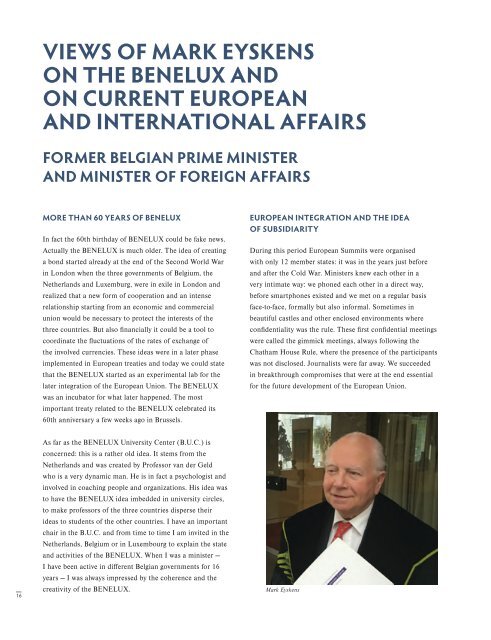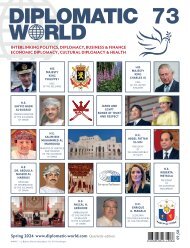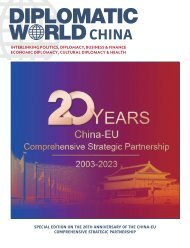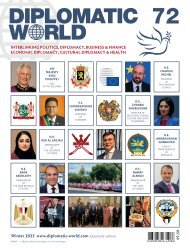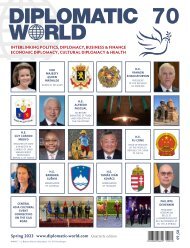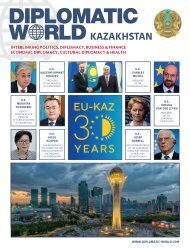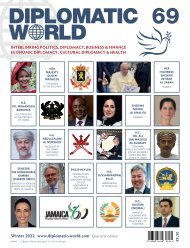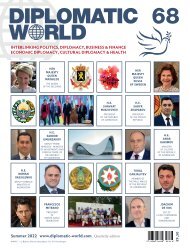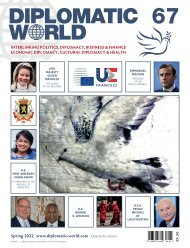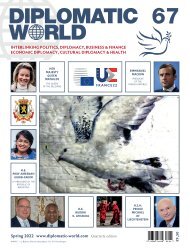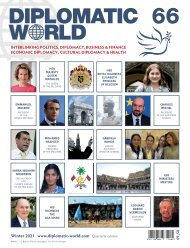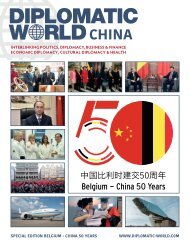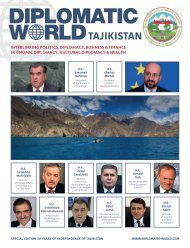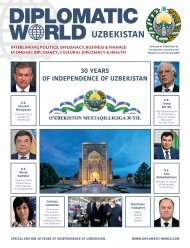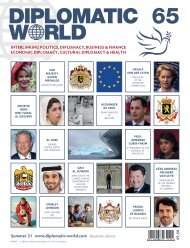You also want an ePaper? Increase the reach of your titles
YUMPU automatically turns print PDFs into web optimized ePapers that Google loves.
VIEWS OF MARK EYSKENS<br />
ON THE BENELUX AND<br />
ON CURRENT EUROPEAN<br />
AND INTERNATIONAL AFFAIRS<br />
FORMER BELGIAN PRIME MINISTER<br />
AND MINISTER OF FOREIGN AFFAIRS<br />
MORE THAN 60 YEARS OF BENELUX<br />
In fact the 60th birthday of BENELUX could be fake news.<br />
Actually the BENELUX is much older. The idea of creating<br />
a bond started already at the end of the Second <strong>World</strong> War<br />
in London when the three governments of Belgium, the<br />
Netherlands and Luxemburg, were in exile in London and<br />
realized that a new form of cooperation and an intense<br />
relationship starting from an economic and commercial<br />
union would be necessary to protect the interests of the<br />
three countries. But also financially it could be a tool to<br />
coordinate the fluctuations of the rates of exchange of<br />
the involved currencies. These ideas were in a later phase<br />
implemented in European treaties and today we could state<br />
that the BENELUX started as an experimental lab for the<br />
later integration of the European Union. The BENELUX<br />
was an incubator for what later happened. The most<br />
important treaty related to the BENELUX celebrated its<br />
60th anniversary a few weeks ago in Brussels.<br />
EUROPEAN INTEGRATION AND THE IDEA<br />
OF SUBSIDIARITY<br />
During this period European Summits were organised<br />
with only 12 member states: it was in the years just before<br />
and after the Cold War. Ministers knew each other in a<br />
very intimate way: we phoned each other in a direct way,<br />
before smartphones existed and we met on a regular basis<br />
face-to-face, formally but also informal. Sometimes in<br />
beautiful castles and other enclosed environments where<br />
confidentiality was the rule. These first confidential meetings<br />
were called the gimmick meetings, always following the<br />
Chatham House Rule, where the presence of the participants<br />
was not disclosed. Journalists were far away. We succeeded<br />
in breakthrough compromises that were at the end essential<br />
for the future development of the European Union.<br />
16<br />
As far as the BENELUX University Center (B.U.C.) is<br />
concerned: this is a rather old idea. It stems from the<br />
Netherlands and was created by Professor van der Geld<br />
who is a very dynamic man. He is in fact a psychologist and<br />
involved in coaching people and organizations. His idea was<br />
to have the BENELUX idea imbedded in university circles,<br />
to make professors of the three countries disperse their<br />
ideas to students of the other countries. I have an important<br />
chair in the B.U.C. and from time to time I am invited in the<br />
Netherlands, Belgium or in Luxembourg to explain the state<br />
and activities of the BENELUX. When I was a minister —<br />
I have been active in different Belgian governments for 16<br />
years — I was always impressed by the coherence and the<br />
creativity of the BENELUX.<br />
Mark Eyskens


